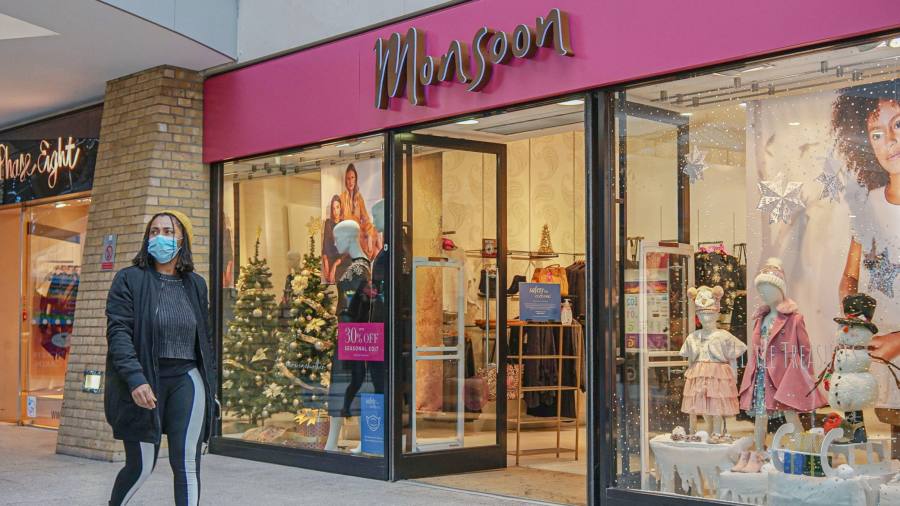
Monsoon, the womenswear retailer that came close to collapse during the pandemic, will open more stores next year after a recovery in profitability and a “surprising” return to high street shopping.
The company, whose distinctive styles were inspired by founder Peter Simon’s travels along the hippie trail in the 1970s, went into administration during the UK’s first Covid-19 lockdown. Simon bought it back by agreeing to write off an existing loan and injecting additional funds.
It currently has 154 UK stores split between Monsoon and sister brand Accessorize, down from 230 at the time it went into administration, but plans to open another 22 in the current financial year.
“Retail is doing great at the moment,” chief executive Nick Stowe told the Financial Times, adding that the strength of the return to stores after a big pivot to ecommerce during the pandemic “had surprised us a bit”.
Annual accounts for holding company Adena Brands, due to be filed at Companies House shortly, show sales of £240mn in the year to August 27, with pre-tax profit of £17.8mn and net cash of £22mn.
Figures for the previous period are not directly comparable because of the administration, but the company said store sales had doubled because of new openings and fewer lockdowns.
“We could probably get up to 200 stores in the UK if we wanted to,” said Stowe, who is keen on locations in well-heeled regional towns and cities — recent openings include Bath and Edinburgh — and what he calls the “London villages” such as Hampstead.
“The retail landscape has changed quite a lot . . . and the business rates changes next year could make quite a difference to the store portfolio — they make [opening stores] more attractive”.
In the recent Budget, the chancellor froze business rates in England and changed the rules so that reductions in rents feed through to business rates immediately rather than over three years. The retail industry, which pays around a quarter of all business rates, has welcomed the changes.
The group also has over 200 stores in Europe, the Middle East and Asia. This estate, some of which is operated by franchise partners, is dominated by Accessorize and includes travel-size stores in airports. Sales there grew 24 per cent during the year, and now account for about a fifth of the total.
Stowe acknowledged that sales growth had slowed since the start of the year and that the macroeconomic climate was challenging but said its impact was uneven. “The cost of living crisis is very real for some people but it’s not the same crisis for everyone,” he said.
“We’d be fools not to think it’s scary . . . but we are not feeling it in the business right now,” he added, noting that a sudden blast of icy weather in the UK had pushed sales of coats and outerwear sharply higher.
Across the group, ecommerce sales are 45 per cent of the total, up from around 20 per cent before the pandemic, but the proportion at Monsoon is much higher while most Accessorize sales are made in stores. The brands also sell on other websites such as Next, John Lewis and Very.
Stowe thought online sales would stay around that level, “not because of a lack of growth in digital but because of more stores”.